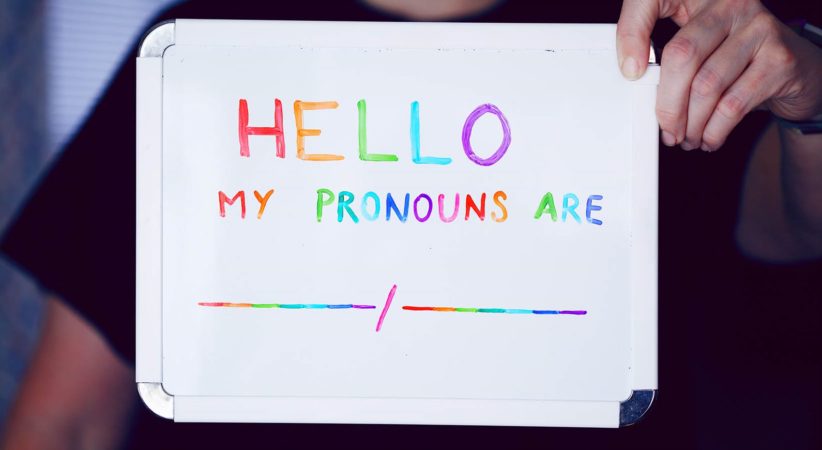
Gender-neutral Pronouns
Are you familiar with gender-neutral pronouns?
“It is a privilege to not have to worry about which pronoun someone is going to use for you based on how they perceive your gender. If you have this privilege, yet fail to respect someone else’s gender identity, it is not only disrespectful and hurtful, but also oppressive.” – Lesbian, Gay, Bisexual, Transgender, Queer Plus (LGBTQ+) Resource Center
What are gender-neutral pronouns?
Personal pronouns are used in English every day. They refer to people without using their name.
People can make assumptions about gender and pronouns based on a person’s appearance or name. These assumptions may not be accurate. There are more gender identities than male and female.
Pronoun examples:
- he/him/his
- she/her/hers
- they/them/theirs
- xe/xem/xyrs
- ze/hir/hirs
While ‘he’ and ‘she’ are gender specific, the singular ‘they’, ‘xe’ and ‘ze’ are gender-neutral. You may see or hear other gender-neutral pronouns. Usage varies over time and location.
Why do gender-neutral pronouns matter?
You can’t know someone’s pronouns by looking at them. Asking and correctly using pronouns is a way to show respect and create an inclusive environment.
Sharing pronouns
Here are some ways people are sharing their pronouns:
- Email – Many email signatures now include pronouns.
- Nametags – Nametags can include a space for pronouns.
- Personal introductions – Start by sharing your own pronouns.
- Meetings – At the beginnings of meetings, people can add pronouns during introductions.
- Classes – Post-secondary classes may have a pronoun round during class introductions.
- Conversation – Once someone has shared their pronoun, continue to use that pronoun when talking with them or about them.
Note: Not everyone will want to share their pronoun for a variety of reasons. Never force it. It is always correct to refer to someone by their name.
Learn more
- Pronoun Guide – GLSEN
- Pronouns Matter – MyPronouns.org
- Pronouns – UBC
- The importance of pronouns – SFU
- Gender-neutral Language Sheet – Qmunity
Related Blog Posts
Cultural Literacy: Your Next Adventure
Discover where you can learn about the diverse cultures of BC.
Volunteer Recognition
Get tips for recognizing volunteers during COVID-19.
Respectful Disability Language
Respectful disability language avoids ableist words and phrases.
